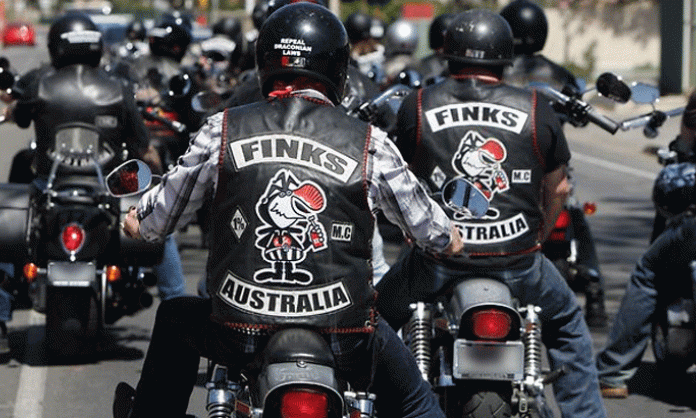The Queensland state government, having made the decimation of public and community services its raison d’etre, is now embarking on a full blown law and order crusade. Coming on the back of new laws that will suspend civil liberties before and during the G20 conference in November 2014, the Liberal National Party’s legislation opens up new vistas for state repression. Bikies are the focus, but there are worrying implications for political dissent and union organisation.
Using the spectre of the supposedly existential threat that “criminal motorcycle gangs” represent to society, Newman and his attorney general Jarrod Bleijie have shredded a range of civil rights. The “Vicious Lawless Association Disestablishment Bill” and the “Criminal Law (Criminal Organisation Disruption) Amendment Bill” give power to the parliament to declare organisations “criminal”.
Twenty-six bikie gangs have already been named. Under the laws, any “participant” in one of these organisations faces a range of penalties, ranging from six months to three years of imprisonment. It is now a crime to: gather with two or more other “participants” from a proscribed organisation; enter proscribed premises such as meeting locations or organisational headquarters, including public events; recruit people to a proscribed organisation.
On top of these new charges, the government has introduced incredibly harsh changes to sentencing for members of any “criminal” organisation who commit crimes. Any member of a proscribed organisation found guilty of charges ranging from “assaults in interference with trade or work” to drug or unregistered weapon possession, will face a mandatory extra 15 years’ jail time on top of their ordinary sentence. Office bearers of such organisations face a mandatory extra 25 years.
In the case of these charges, the burden of proof is reversed. Anyone accused of being a so-called “vicious lawless associate” has to prove either that they are not involved with the organisation or that the organisation itself does not exist for the reason of committing the listed offences.
Likewise, police now have the power to search without warrant anyone suspected of being a member of a criminal organisation and their vehicle. The right to bail also is denied.
Queensland’s anti-corruption and organised crime watchdog, the Crime and Misconduct Commission (CMC), can deny individuals the right to silence. Those who refuse to answer questions from the CMC face jail sentences that rapidly increase in severity depending on the number of times the interviewee refuses to answer. The minimum sentence is five years for the third offence.
Newman has openly stated that these laws should be used to create a “revolving door” of imprisonment for anyone who refuses to cooperate.
To top it all off, “vicious lawless associates” found guilty are to be imprisoned in solitary confinement for 23 hours a day, with only one hour of visitation rights per week, no access to gym equipment or television and all phone calls and mail monitored.
Even the reactionary Brisbane newspaper Courier-Mail – which has not let a day go by without some new exposé of the bikie menace – commented that such conditions warrant comparison to Guantanamo Bay.
The laws create an Orwellian situation: someone can now be imprisoned in near total isolation for decades because of their associations. These laws not only obliterate the rights of the members of the 26 gangs already proscribed by the government and allow police to harass motorcyclists with impunity.
The morphing of the CMC into Newman and Bleijie’s very own Star Chamber has eerie echoes of the operation of the soon to be revived anti-union construction industry police, the Australian Building and Construction Commission.
The framework created by these laws shows just how easy it would be for the government to criminalise militant unions that choose to defy laws against strikes and pickets. And the same goes for political organisations that for one reason or another arouse the ire of the state.
The government is well aware that the best way to make these attacks palatable is to wrap them up with a “war on bikies”. With the assistance of a hysterical media to create an artificial sense of crisis, the government has made the most of the “urgency” of the moment to pass changes whose scope extends far beyond small-time crooks.
At a time when “law and order” politics are escalating across the country, it is important to recognise clearly the danger posed to workers’ rights and political organising by such laws.








